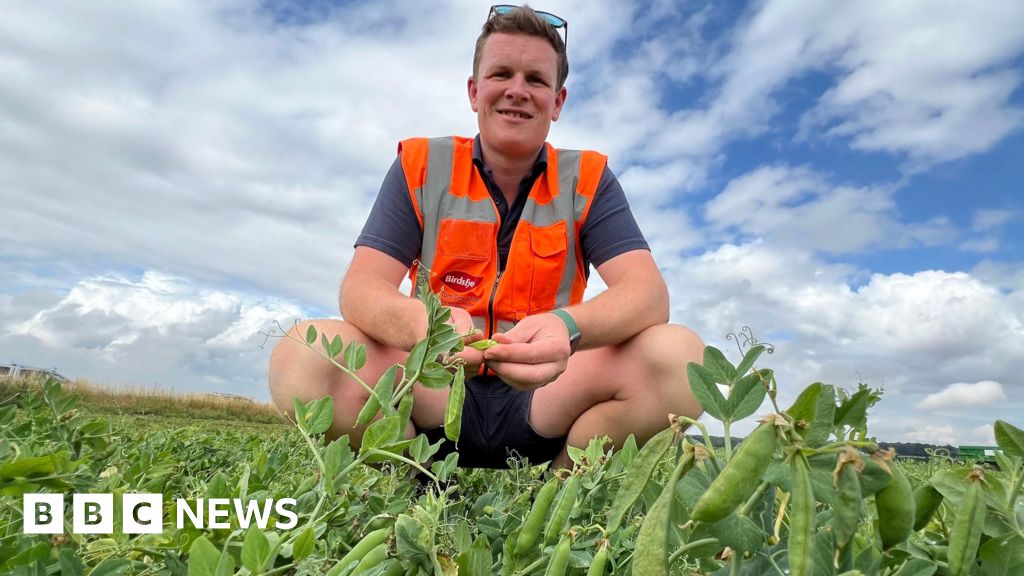Farmers fear there will be a shortage of British-grown peas in supermarket freezers after long spells of sunshine and dry weather resulted in the earliest harvest in 14 years. According to the National Farmers’ Union (NFU), vining pea growers across Lincolnshire, Norfolk, Suffolk and East Yorkshire have seen up to a 30% drop in the number of peas picked and processed this year. One pea grower in Louth said he believed the drop in yield “could result in shortages”. The Met Office said England had its driest spring in more than 100 years, followed by its warmest June on record. Some areas experienced three heatwaves in quick succession in June and July, with the intense warmth drawing more moisture out of the soil. Henry Moreton, a regional NFU chair in Lincolnshire, said crops had been “drying out and dying because of the extreme heat and the lack of moisture”. He added that the east coast is the primary vining pea land, but it’s not looking good at the moment. Ian Watson is an operations manager for Stemgold Peas, from Louth, which works with 45 farms across Lincolnshire, growing the produce across 3,500 acres of land. They usually produce about 6,000 tonnes of peas a year, of which 5,000 are sold frozen while the remainder are tinned. Mr Watson said the harvesting period would normally begin in the middle of June and continue until the end of August, but this year the harvest started on 4 June “which is incredibly early”. He said the crops were so stressed by the weather, the number of peas in a pod had dropped by more than half, from up to 10 to “two big round peas and the rest have shrivelled up and died”. Tom Screeton works as a senior agriculture fieldsman at Birds Eye looking after pea fields in East Yorkshire. He said the drought meant the peas were maturing at a faster rate than they were able to be harvested. The company works with more than 250 growers who usually harvest about 35,000 tonnes of peas a year in total. Michelle Lawrie is a quality manager at Birds Eye, checking the condition of the harvested produce. A pea taster, she samples about 32 plates of peas on a daily basis during the season. She said the sweetness depends on the weather, and this year the peas are very sweet due to the sunny weather. Mr Screeton said the firm was looking at ways to mitigate challenges brought on by the fluctuating extreme weather, including building more robust varieties as part of their breeding programme with more drought tolerant and stress resistant varieties.
Source link




